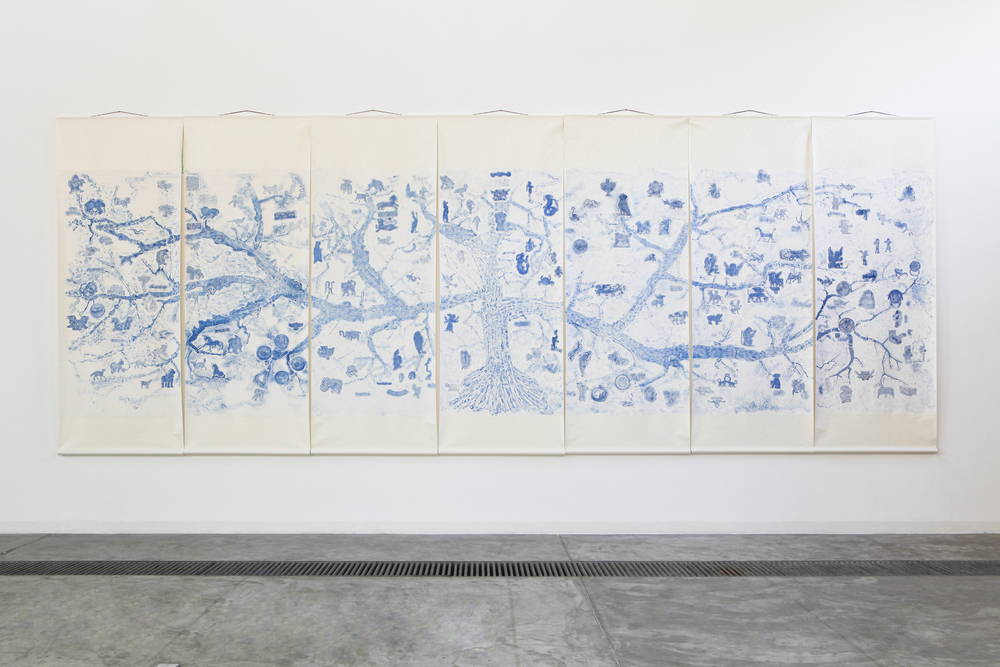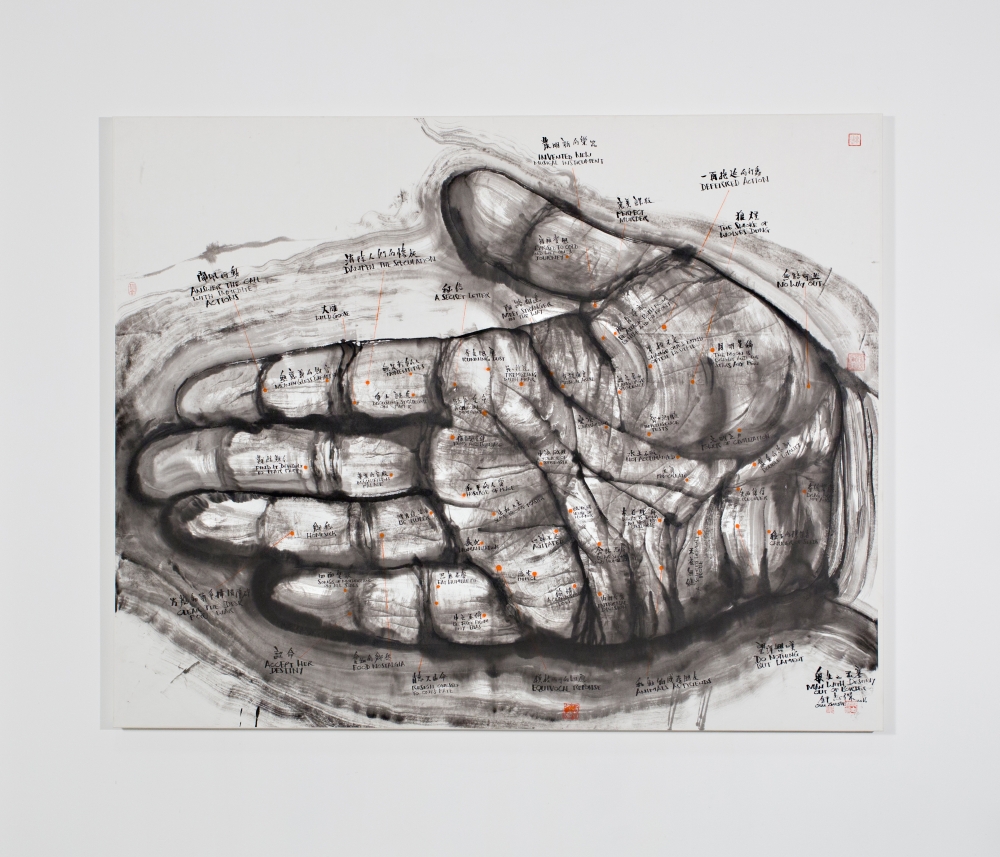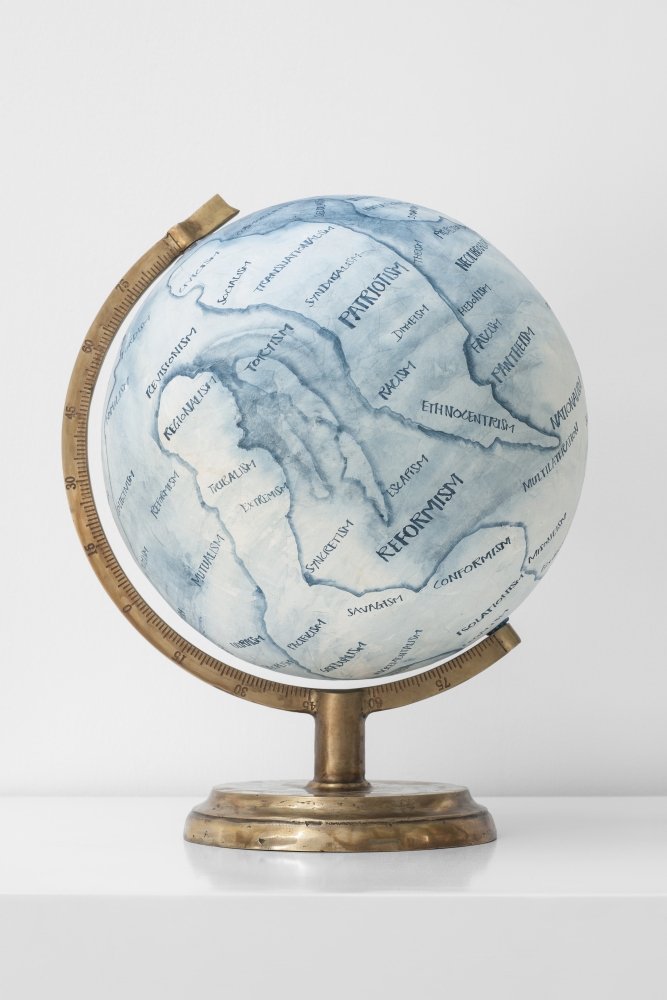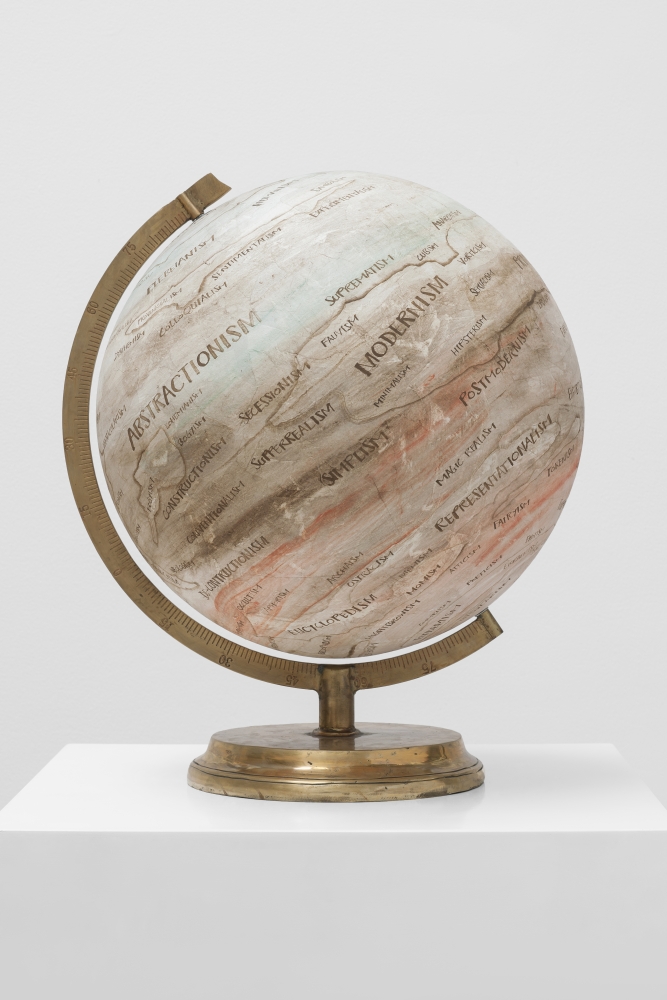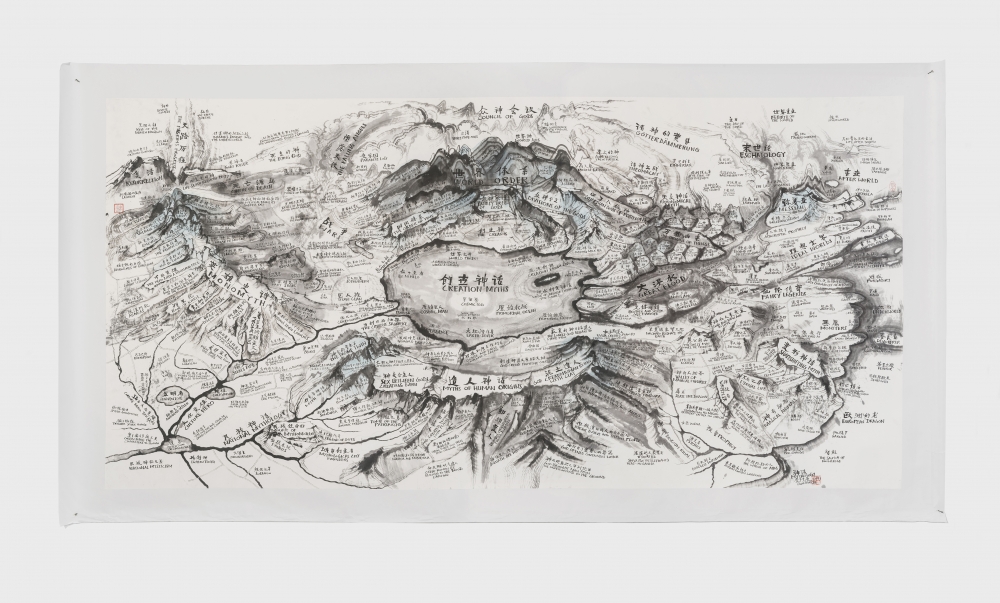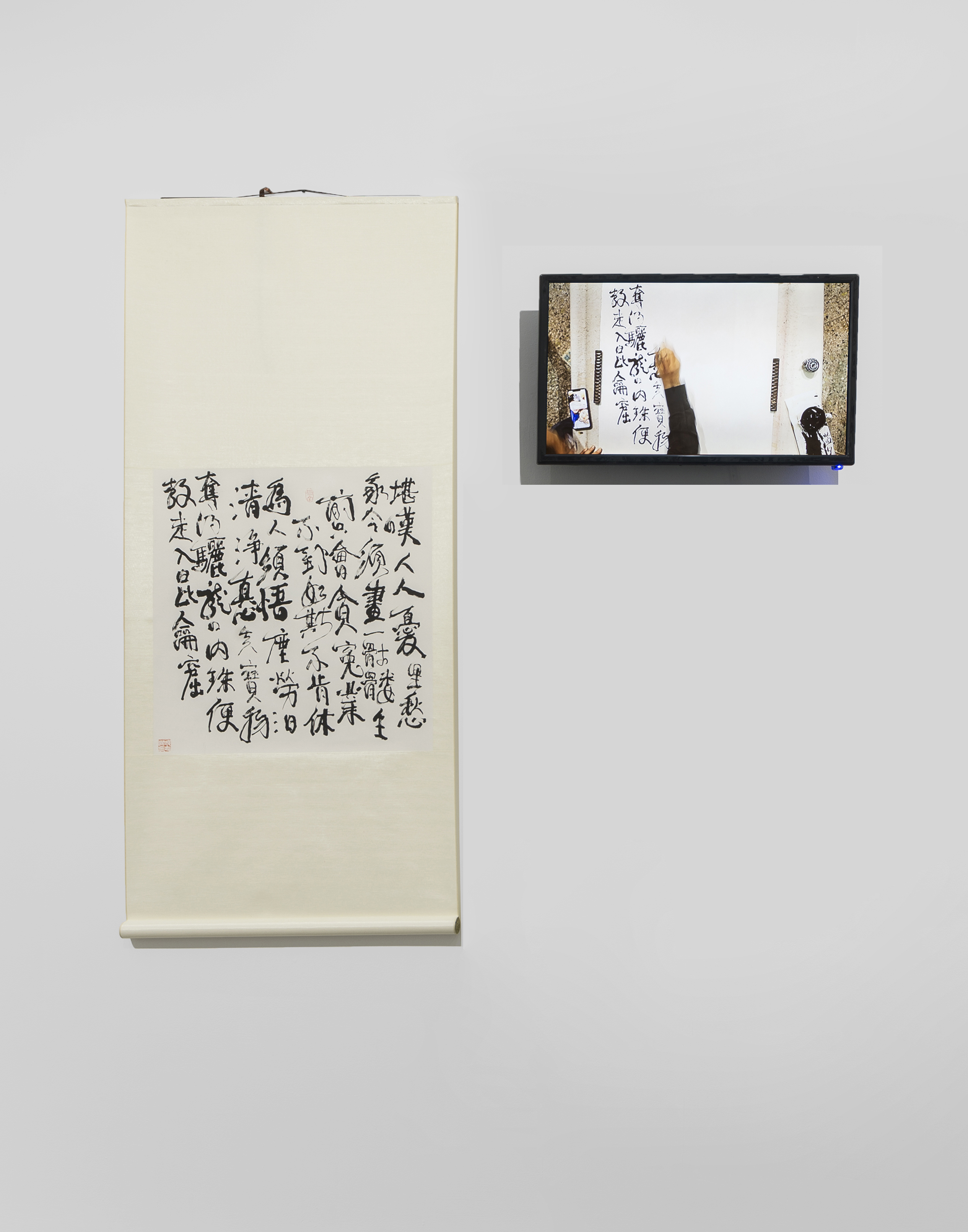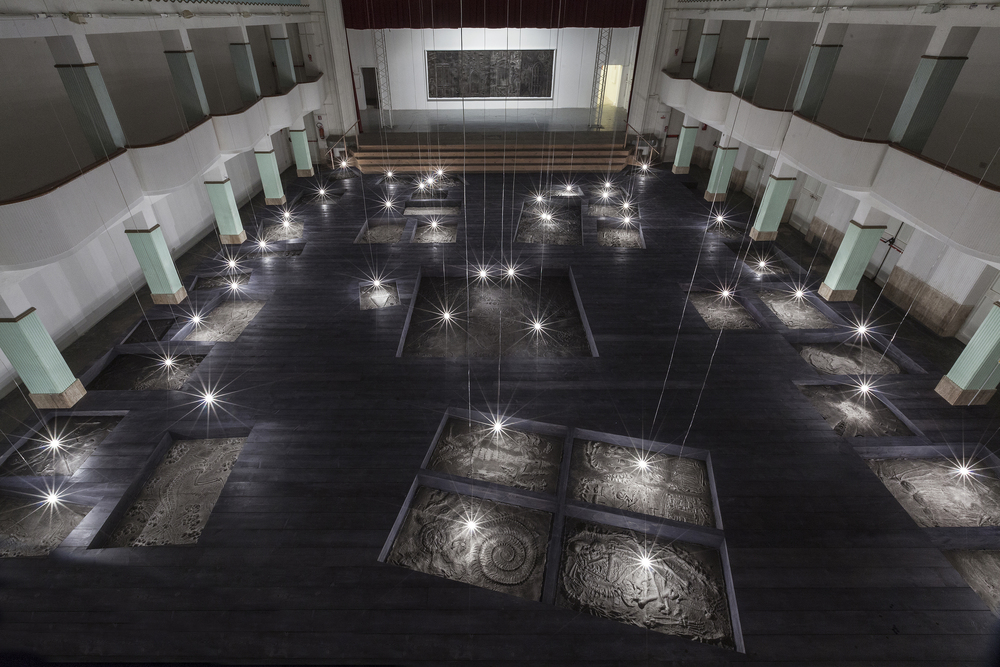“Racing Against Time” by Qiu Zhijie is a project that occupied the stalls area of Galleria Continua / San Gimignano. The spaces were transformed into something representing an archaeological site, with the floor embedded with slabs of patterned paper relief, coloured with Chinese ink.
“It is like a palaeontological dig and a time machine of humanity. Looking back in time to the dinosaur kingdom, the bird kingdom and the mammal kingdom, the whole history of evolution is based on the survival of the fittest. The theme of this exhibition is the battle of powers and the war between empires. It dwells upon the dichotomy of these two logics” Qiu Zhijie
The project includes a series of landscapes with the title “Evolution”. These works are made through an ancient Chinese technique of creating a relief by padding sponges. It’s a traditional technique that is usually employed to place onto paper the inscriptions and motifs that are normally depicted on ancient vases and ceramics. The paper reliefs produced for this project feature animals, architectural features like doors, windows, arches, patterns, as well as fossils, plants, bone formations and space men.
The “Evolution” series develops chronologically, starting in Pangaea, moving through the agricultural period and the “birth of God”. Qiu Zhijie explains some of the symbolism like so: “Attestations of merit and heraldic symbols are forms of power; swords, armour and pistols are used to show off; gates and towers are both architectural forms of symbolism, an expression of perseverance: gates represent power and will, towers symbolize a reaching upwards; plants and animals are links between the history of evolution and the history of empires: birds and eagles, detritus of buildings, Duogong brackets, Roman columns, all shattered fragments and ruins of imperial formalism.”
“Racing Against Time” is an all-encompassing experience that takes the visitor on a pathway of understanding; chronologically investigating the stages of the development of our world. It presents us with reliefs of recognisable images. The fossils and bones are at home in this setting resembling an archaeological site, but as society “develops”, we see weapons, missiles, architectural structures, flying objects and futuristically dressed human figures, causing us to ponder the extent of our evolution and its moral sensibilities.
As an artist, Qiu Zhijie is known for his calligraphy and ink painting, photography, video, installation and performance works. His art is representational of a new kind of experimental communication between the Chinese literati tradition and contemporary art, social participation and the power of self-liberation of art.
As an art writer, Qiu Zhijie published several books include: The Image and Post Modernism (2002), Give Me a Mask (2003), The Limit of Freedom (2003), The Photography after Photography (2004), On Total Art (2012). Catalogs of his work include: Breaking Through the Ice (2009), The Shape of Time (2007), Archeology of Memory (2006), etc.
He was also the curator of the first video art exhibition in China in 1996, and curated a series of “Post-sense Sensibility” exhibitions during 1999 and 2005 promoting the young generation of Chinese artists. In 2012 he was the chief curator of the 9th Shanghai Biennale “Reactivation”, in 2017 he is the chief curator of the Chinese Pavilion of the 57th Venice Biennale.
He was shortlisted for the Hugo Boss Prize administered by the Guggenheim Foundation due to his work of The Nanjing Yangtze River Bridge Project. He was awarded “Artist of the Year” of the Award of Art China in 2009, and was nominated for the same award in 2016.
His works are collected by major museums and institutions around the world, including the Guggenheim Museum in NYC, the Metropolitan Museum of Art, Asian Art Museum of San Francisco, Fondation Louis Vuitton, Foundation by Christian Dior, Ullens Foundation, Neuer Berliner Kunstrerein, and the White Rabbit Gallery in Sydney.
